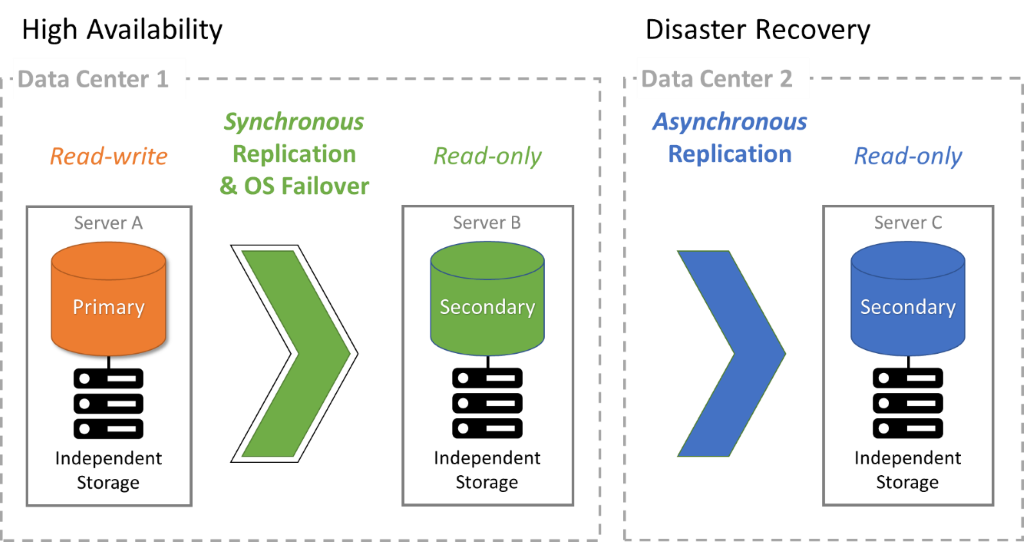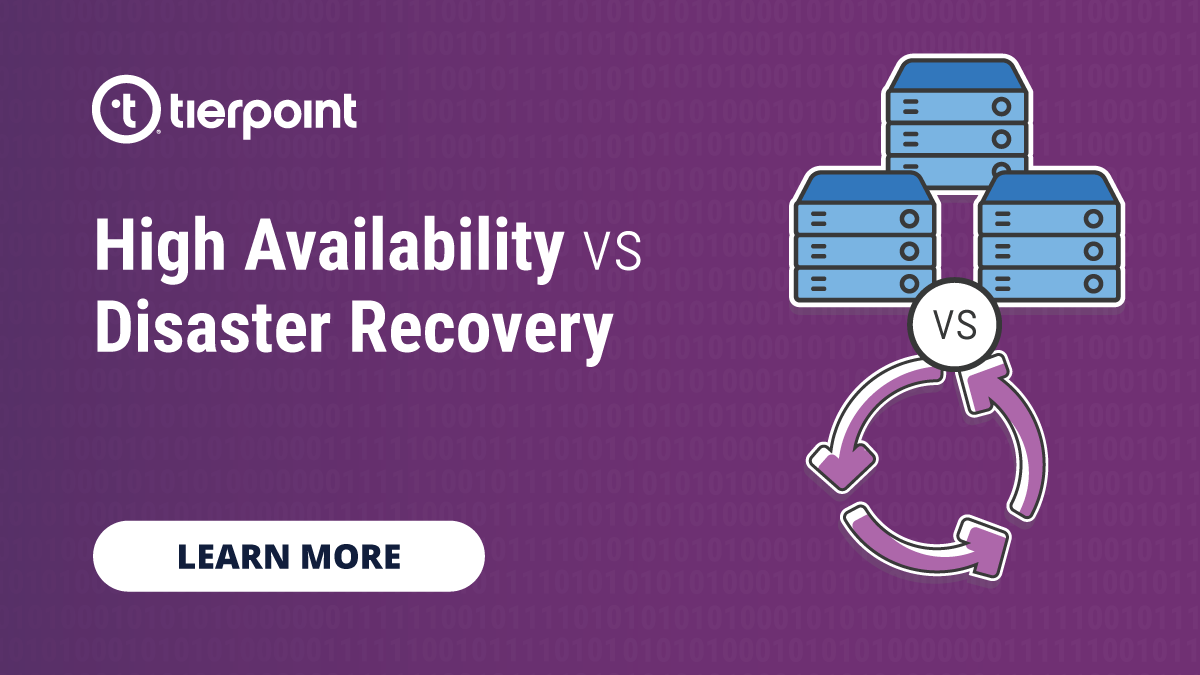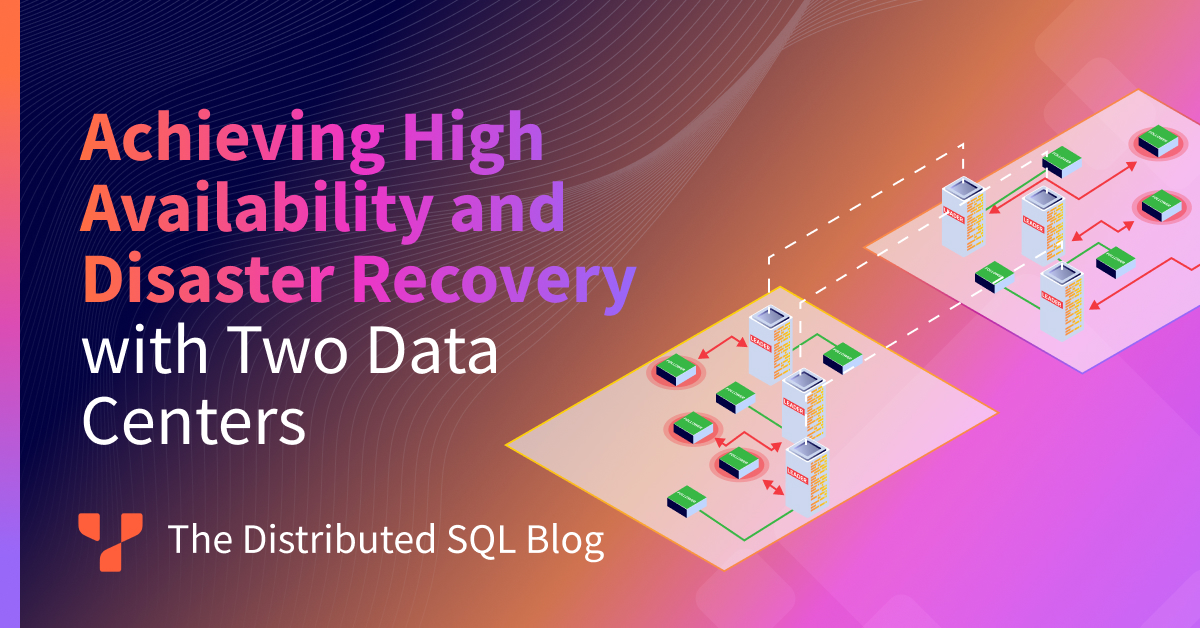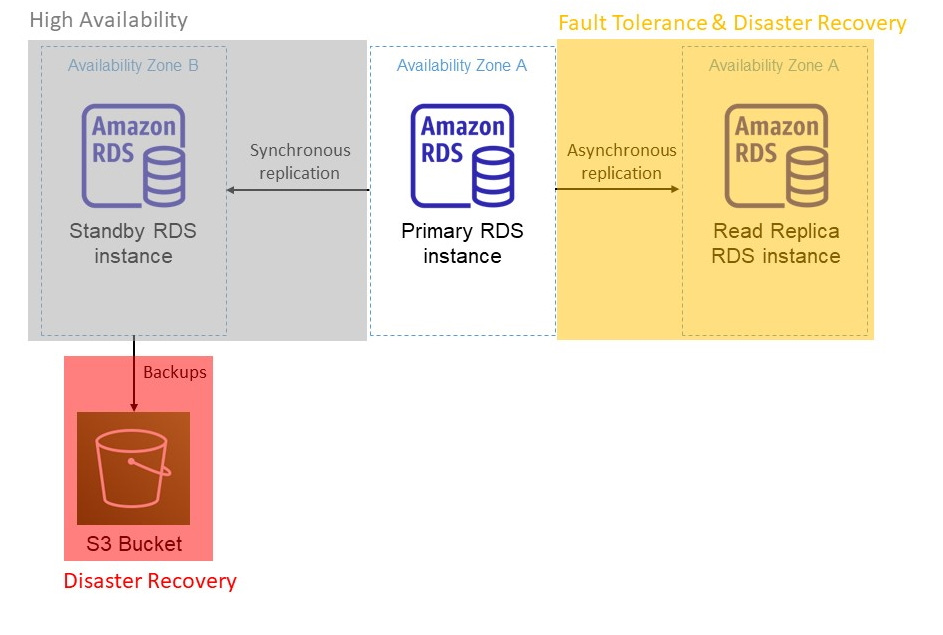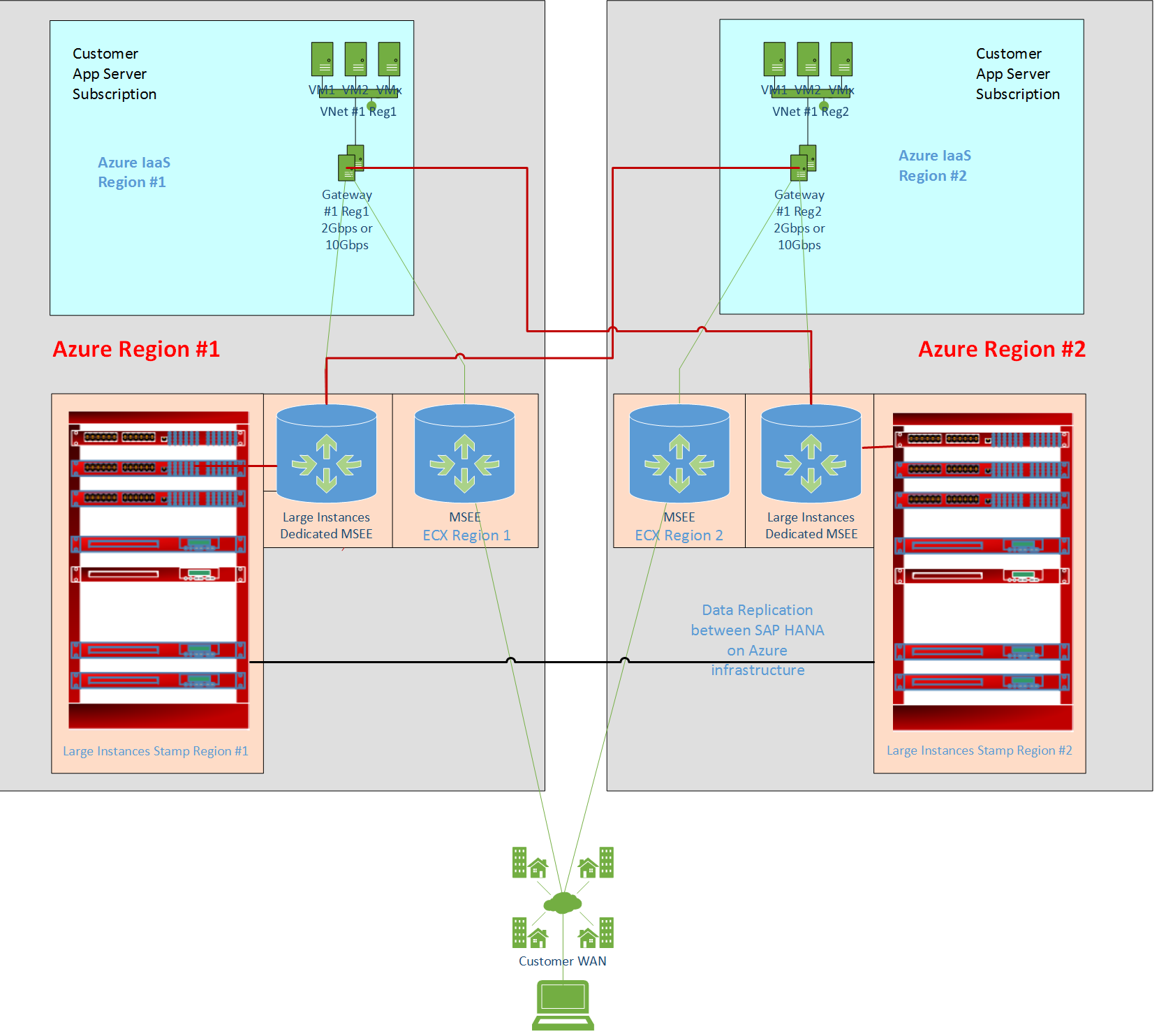High Availability And Disaster Recovery - However, availability focuses on components of the workload, whereas disaster recovery focuses on discrete copies of the entire workload. While high availability focuses on preventing downtime through redundancy and automated failover, disaster recovery provides. High availability, fault tolerance, and disaster recovery are key strategies designed to address different aspects of.
High availability, fault tolerance, and disaster recovery are key strategies designed to address different aspects of. However, availability focuses on components of the workload, whereas disaster recovery focuses on discrete copies of the entire workload. While high availability focuses on preventing downtime through redundancy and automated failover, disaster recovery provides.
High availability, fault tolerance, and disaster recovery are key strategies designed to address different aspects of. While high availability focuses on preventing downtime through redundancy and automated failover, disaster recovery provides. However, availability focuses on components of the workload, whereas disaster recovery focuses on discrete copies of the entire workload.
High availability and disaster recovery SAP HANA on AWS
However, availability focuses on components of the workload, whereas disaster recovery focuses on discrete copies of the entire workload. High availability, fault tolerance, and disaster recovery are key strategies designed to address different aspects of. While high availability focuses on preventing downtime through redundancy and automated failover, disaster recovery provides.
Disaster Recovery & High Availability Virtual Roundtable
While high availability focuses on preventing downtime through redundancy and automated failover, disaster recovery provides. High availability, fault tolerance, and disaster recovery are key strategies designed to address different aspects of. However, availability focuses on components of the workload, whereas disaster recovery focuses on discrete copies of the entire workload.
High Availability and Disaster Recovery
High availability, fault tolerance, and disaster recovery are key strategies designed to address different aspects of. However, availability focuses on components of the workload, whereas disaster recovery focuses on discrete copies of the entire workload. While high availability focuses on preventing downtime through redundancy and automated failover, disaster recovery provides.
High Availability vs Disaster Recovery TierPoint, LLC
However, availability focuses on components of the workload, whereas disaster recovery focuses on discrete copies of the entire workload. High availability, fault tolerance, and disaster recovery are key strategies designed to address different aspects of. While high availability focuses on preventing downtime through redundancy and automated failover, disaster recovery provides.
How to Achieve High Availability and Disaster Recovery with Two Data
High availability, fault tolerance, and disaster recovery are key strategies designed to address different aspects of. However, availability focuses on components of the workload, whereas disaster recovery focuses on discrete copies of the entire workload. While high availability focuses on preventing downtime through redundancy and automated failover, disaster recovery provides.
High Availability vs Disaster Recovery What's the Difference?
While high availability focuses on preventing downtime through redundancy and automated failover, disaster recovery provides. However, availability focuses on components of the workload, whereas disaster recovery focuses on discrete copies of the entire workload. High availability, fault tolerance, and disaster recovery are key strategies designed to address different aspects of.
High Availability vs Fault Tolerance vs Disaster Recovery Explained
High availability, fault tolerance, and disaster recovery are key strategies designed to address different aspects of. However, availability focuses on components of the workload, whereas disaster recovery focuses on discrete copies of the entire workload. While high availability focuses on preventing downtime through redundancy and automated failover, disaster recovery provides.
High availability and disaster recovery of SAP HANA on Azure (Large
However, availability focuses on components of the workload, whereas disaster recovery focuses on discrete copies of the entire workload. High availability, fault tolerance, and disaster recovery are key strategies designed to address different aspects of. While high availability focuses on preventing downtime through redundancy and automated failover, disaster recovery provides.
High availability versus disaster recovery Four elements of high
While high availability focuses on preventing downtime through redundancy and automated failover, disaster recovery provides. High availability, fault tolerance, and disaster recovery are key strategies designed to address different aspects of. However, availability focuses on components of the workload, whereas disaster recovery focuses on discrete copies of the entire workload.
Disaster Recovery Service
High availability, fault tolerance, and disaster recovery are key strategies designed to address different aspects of. While high availability focuses on preventing downtime through redundancy and automated failover, disaster recovery provides. However, availability focuses on components of the workload, whereas disaster recovery focuses on discrete copies of the entire workload.
High Availability, Fault Tolerance, And Disaster Recovery Are Key Strategies Designed To Address Different Aspects Of.
While high availability focuses on preventing downtime through redundancy and automated failover, disaster recovery provides. However, availability focuses on components of the workload, whereas disaster recovery focuses on discrete copies of the entire workload.


